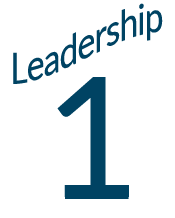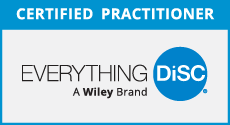Leadership 1: Skills for Inspiring Top Performance
It takes a special skill set to manage and lead others effectively. Research shows that most individuals, when first promoted to a management position, feel ill equipped for the role. More seasoned managers, when not provided with adequate training, have similar experiences.
 The Leadership 1 program is designed to provide new and experienced managers and supervisors with the fundamental skills needed to lead their staff to higher levels of productivity.
The Leadership 1 program is designed to provide new and experienced managers and supervisors with the fundamental skills needed to lead their staff to higher levels of productivity.
Program Length
2 days or 4 half days. This program can be tailored to meet your targeted objectives, using a variety of blended learning techniques. Some of the modules available include:
Day #1 Modules
- Leadership Approaches
Challenges and Rewards of Being a Leader - Situational Leadership
Identifying the Development Level and Four Leadership Styles - Key Communication Skills
Key skills used most often: Show Appreciation, Focus on Specifics, Ask Effective Questions, and Listening Techniques - Managing Performance Discussions
Addressing performance issues in a way which encourages personal accountability and motivates real behavior change - DiSC® Behavioral Styles
Using the DiSC® model for understanding behavioral styles. Help managers understand themselves and how to interact most effectively with each individual they manage.
Day #2 Modules
- Performance Management Cycle
Establishing goals and objectives, conducting consistent progress reviews and conducting performance appraisals - Conflict Management
Using the Thomas-Kilmann Conflict Mode Instrument to assesses an individual’s behavior in conflict situations. - Leading Change
Improving ability to lead change and generate employee support for change efforts - Behavioral Interviewing
Asking behavior-specific, targeted interview questions to determine a candidate’s ability to succeed in the job - 360 Degree Feedback and Planning
Creating an individualized Development Plan after receiving an individualized profile (self-rating) or 360 degree feedback from one’s manager, direct reports and peers.
Learning Instruments Used
- Everything DiSC Management Assessment
- Thomas-Kilman Conflict Mode Assessment
- Optional 360 Feedback Assessnment
Benefits To The Organization
- Generate greater support among staff for new policies, procedures and initiatives
- Build stronger relationships with each direct report
- Communicate in a way that reduces misunderstandings
- Encourage a greater responsibility and accountability among your staff
- Select the right candidate for a position
- Feel more confident and knowledgeable as a Leader
Benefits To The Individual
- Recognize methods for communication which improve productivity
- Learn and practice techniques to address performance issues effectively
- Understand and practice methods to manage performance during the entireyear, not just during the annual review
- Learn interviewing techniques which will improve hiring decisions
- Learn how to become a more effective leader of change
- Identify current strengths and development needs as a manager



